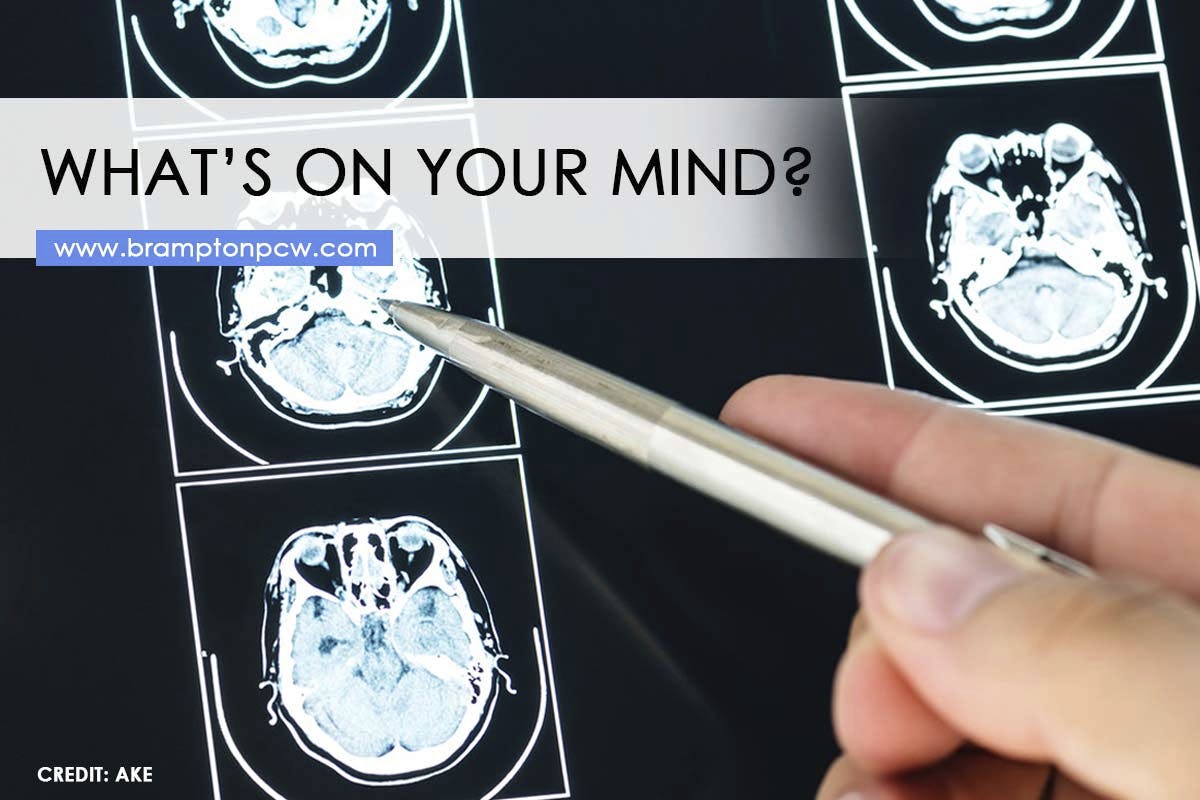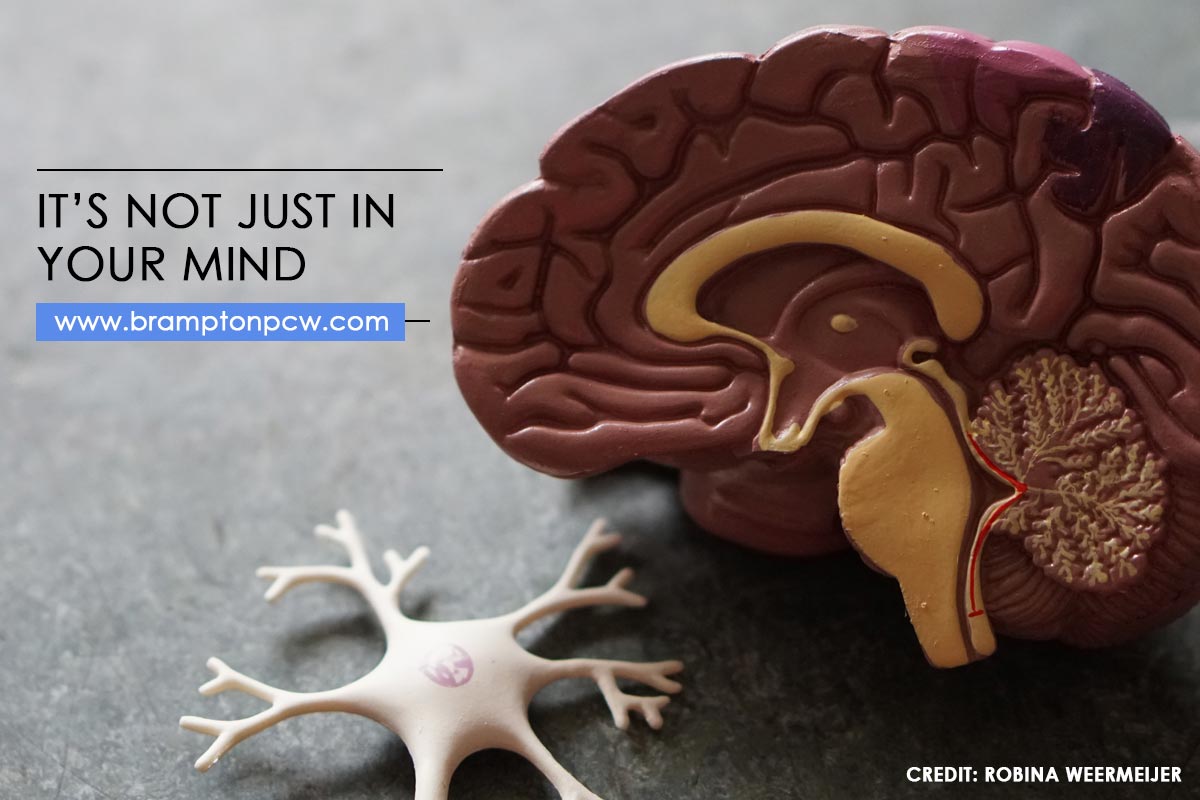Functional neurological disorder (FND) is an umbrella term used to describe physical and mental health conditions caused by issues in the functioning of the nervous system. Unlike typical neurological disorders, the brains of patients suffering from FND are structurally sound. This means that a brain scan via an MRI (magnetic resonance imaging) or an EEG (electroencephalogram) will turn up normal. While the dysfunction may not be perceptible with current technology, it exists; and the problem lies in the brain and body’s inability to send or receive nerve signals properly.
Although the symptoms of FND cannot be classified under organic neurological diseases or medical problems, they are recognized clinically. It is a silent illness, but the symptoms are real and can negatively affect how an individual functions in their day-to-day life. It often accompanies chronic illnesses and fatigue, causing an individual distress and disability.

What Are The Symptoms of Functional Neurological Disorder?
Individuals can experience a wide variety of symptoms depending on the type of FND they have. FND typically affects several aspects of the body (motor, cognitive, and sensory functions) and can be any combination of these. Depending on the individual, symptoms can come in different patterns and can either be intermittent or persistent. The level of severity also varies from one person to another and, according to FND Hope, can be as debilitating as Parkinson’s disease and MS” (multiple sclerosis).
Below are some of the signs and symptoms of FND:
- Motor issues
-
- Lack of motor coordination
- Fatigue
- Weakness in the limbs
- Paralysis
- Poor balance
- Involuntary movements (eg. tremors, spasms, twitching, and jerking)
- Gait disorder
- Difficulty swallowing
- Altered bladder and bowel movements
- Cognitive disturbance
-
- Confusion
- Problems in concentration and focusing
- Sleep disturbances
- Memory loss (either short- or long-term)
- Impaired judgement
- Depersonalization (the feeling of being outside one’s self)
- Episodes of unresponsiveness
- Episodes of dissociative or non-epileptic seizures (loss of consciousness, e.g. blackouts or fainting, which can resemble epileptic seizures)
- Sensory dysfunction
-
- Headaches and migraines
- Hearing impairment (e.g. loss of hearing or hearing difficulties)
- Speech impairment (e.g. inability to speak, poor voice quality, slurring, or stuttering)
- Visual impairment (e.g. loss of vision, double vision, blurred vision, sensitivity to light)
- Smell impairment (e.g. loss of smell)
- Numbness or tingling sensations, often on one side of the body (e.g. face, torso, and limbs)
- Pain in the skin, muscles, or joints
FND symptoms are changeable and can alter from one minute to the other. Symptoms vary from one day to the next. In a majority of the cases, symptoms disappear after a short period. Unfortunately, there are those whose symptoms may relapse or persist for weeks, months, or even years. It can keep sufferers from being able to perform everyday activities, including work, placing added financial and social strain on top of the physical and mental ones. This can lead to anxiety and depression.

What Causes FND?
The exact cause of FND remains unknown.
Theories on the cause of this condition cover a myriad of possibilities, including stress, psychological trauma, physical injuries, and illnesses. Unfortunately, these theories are complex, involving varying mechanisms based on the type of FND the patient has.
Here are some of the many theories regarding the triggers of FND:
- “Stuck in a Pattern” - Some studies posit that the onset of symptoms is caused by the nervous system holding on to the symptoms of previous illnesses such as physical trauma, an infection, or a migraine. This becomes a sort of pattern in the nervous system and manifests as alterations in brain function and control.
- Stress or Childhood Neglect - A systematic review and meta-analysis conducted in the United Kingdom found a common denominator in most sufferers of FND. Compared to the general population, FND patients are more likely to have experienced stressful life events and childhood neglect (PDF). However, in the same study, many patients reported not having experienced any stressors.
- Multiple Causes - Other studies hypothesize that FND is the result of a combination of several triggers that can vary depending on the individual. Psychological trauma may have caused many to develop FND, but it is not necessarily valid in others. The latter may have developed FND symptoms through other means, like physical injury or illness.
Though the medical world and the general public alike are in the dark regarding the exact triggers of FND, science has identified specific factors that make an individual susceptible to this condition.

Risk Factors
An individual has an increased likelihood of developing FND if the individual:
- Is a woman (women are more likely than men to develop FND)
- Has a neurological condition (e.g. migraines and epilepsy)
- Has recently experienced significant amounts of stress, distressing life events, or physical or emotional trauma
- Experienced trauma or neglect during childhood
- Is related to another individual who has FND
- Is suffering from a mental health disorder (e.g. anxiety, dissociative disorder, or personality disorder)
- Is experiencing fatigue or chronic pain
Note, however, that some people with FND may not have any of these risk factors.

Diagnosis
Getting a diagnosis requires attention from a functional neurologist or a doctor familiar with neurological disorders or functional neurology.
- Physical Exam - This may involve answering questions regarding your health and your symptoms and undergoing a few tests (e.g. imaging exams) to eliminate other health conditions.
- Psychiatric Exam - This involves a mental health professional conducting an evaluation of your mental and emotional state, behavioural patterns, and symptoms.
For FND, early diagnosis and treatment are crucial. If you or a loved one are showing signs and symptoms of this disorder, see your neurologist.

Management And Treatment
- Medication - If stress, anxiety, or depression are the primary triggers of FND, antidepressants or anti-anxiety medications may be prescribed. Painkillers may also be recommended to help manage pain symptoms or chronic pain that triggered FND. Those with epilepsy or experience dissociative seizures can be treated with anti-epileptic drugs.
- Physiotherapy - Individuals who are experiencing physical symptoms (e.g. pain) or motor dysfunction (e.g. gait disorder), can benefit from physical therapy.
- Cognitive Behavioural Therapy (CBT) - If the onset of FND was caused by stress, trauma, or a mental health issue, a psychologist or psychotherapist can help an individual with their recovery. CBT can also be used to treat individuals with dissociative seizures.
Although there is a lot to be desired in the archive of information for this condition, patients with FND can take heart in the fact that the search continues. As more theories surface and more technological advances are developed, pinpointing triggers and quicker, more efficient diagnoses can be performed.
In the meantime, patients should rest as much as possible and gather as much emotional support as they can — whether from family, friends, or coworkers — and focus on healing. It may be a silent illness, but you are not alone. There are people who care and look forward to seeing you restored to full health.
Brampton Physiocare & Wellness Clinic is among those who believe that FND patients should receive the necessary care and attention. We offer physiotherapy services to help you or your loved one manage the symptoms of FND. Call us at (905) 497-1311 or book an appointment online. We will develop a personal treatment plan for you.







